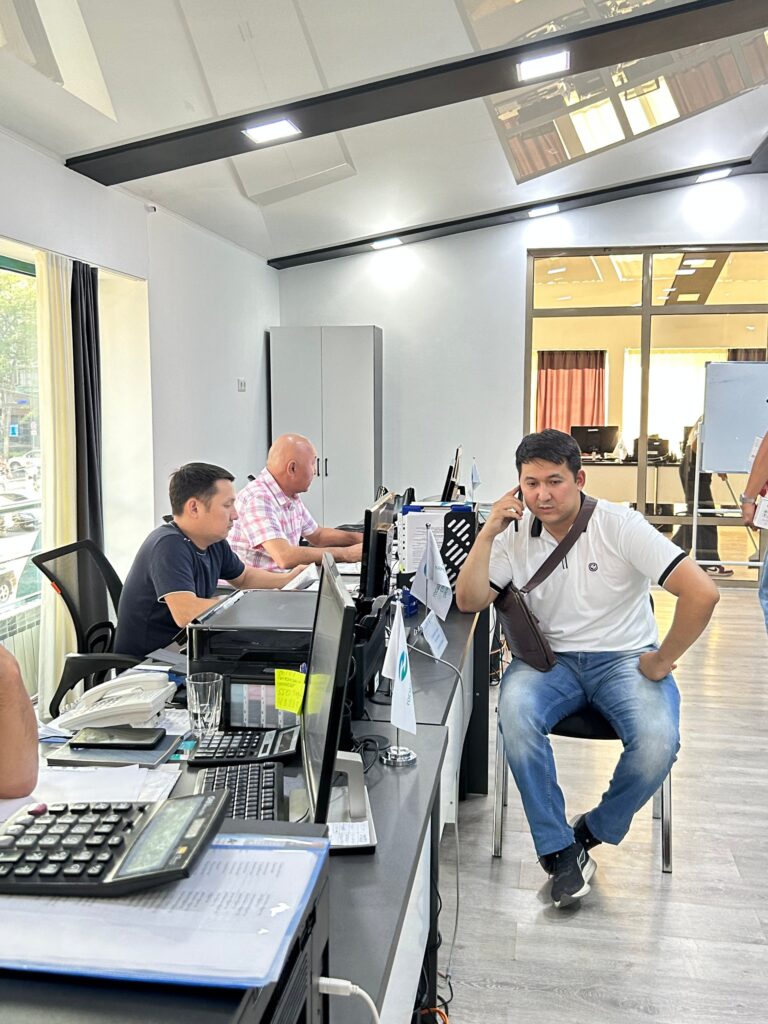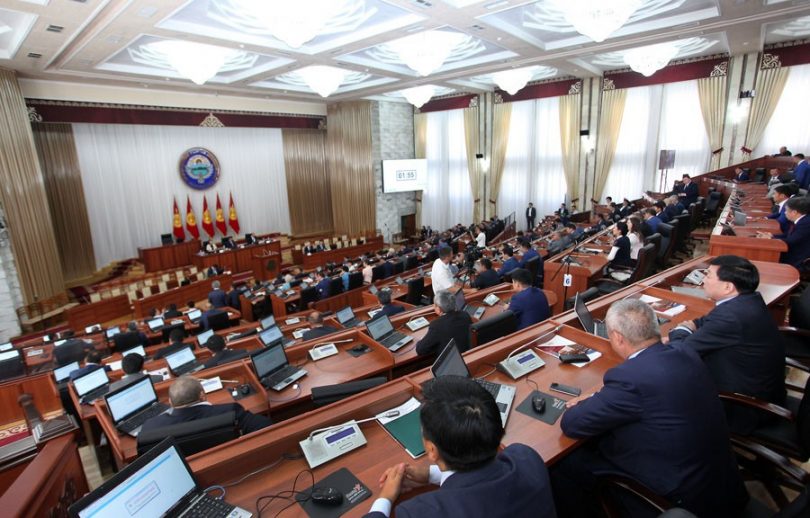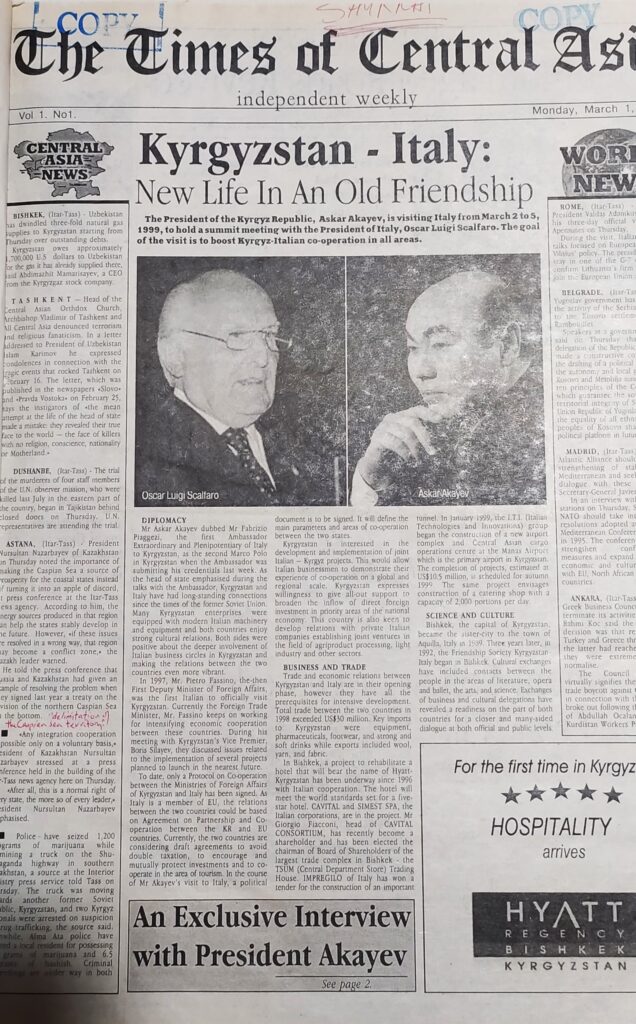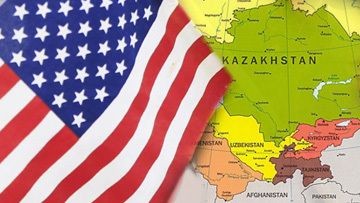BISHKEK (TCA) — As Kyrgyz lawmakers have stepped up with an initiative aimed at introducing more restrictions on the media, we are republishing the following article originally published by EurasiaNet.org:
Deputies in Kyrgyzstan’s parliament have proposed legislation that would ban foreigners from setting up media outlets and restrict the proportion of non-local funding for news organizations to 20 percent.
The backers of the bill — a group of MPs led by Kojobek Ryspayev and Iskender Matraimov, both of the ruling Social Democratic Party (SDPK) — say the legislation is aimed at bolstering what they term “information security.” In the current climate, that language is a clear allusion to what jittery authorities fear is the potential for independent media to provide the kind of aggressive reporting that could fuel protest moods.
The proposed legislation was published online on May 12 for further public scrutiny and discussion. Sponsors of the bill have preventatively sought to dispel possible criticism by pointing out that it has been drafted in accordance with international practice. Examples offered are Russia and Kazakhstan, where foreign participation in media outlets is restricted to 50 percent and 20 percent, respectively. Both countries place toward the bottom of the Reporters Without Borders (RSF) Press Freedom Index, with Russia in 148th position and Kazakhstan coming in at 160th.
The MPs note also somewhat disingenuously and inaccurately draws parallels with legislation in the United States, Australia and France, although media ownership regulations there are not quite as simple as a limitation of 20 percent to 30 percent in foreign ownership, as claimed.
MPs provide no indication about what spurred the draft bill or which specific outlets will be affected. What appears evident is that the law, if passed, would affect not just traditional platforms like newspapers, radio and television, but also online media. There are no laws in existence in Kyrgyzstan regulating online media, so this initiative could set a precedent.
A large number of online news websites could end up being targeted, in effect striking a blow at outlets that provide a balance in the overall national news output. That would include websites like those of Radio Free Europe/Radio Liberty’s Kyrgyz service, Radio Azattyk, the country’s oldest and largest news agency, AKIpress, and KyrTAG, a branch of Kazakhstan-based news agency KazTAG, all of which have foreign founders or operate on grants provided from abroad.
Supporters of the draft bill argue that local media should fund themselves through paid services and “other sources not forbidden by law.”
In reality though, Kyrgyzstan’s advertising market is paltry and the potential for subscriptions similarly weak, not least since many are used to getting their news for free. The practical result of such funding restrictions would be to limit the range of news outlets on offer and put those that survive in the position of potentially having to rely on loss-leading endowments from politically interested parties.
Proponents of the proposed legislation would argue, however, that foreign funders are similarly interested in promoting their own agendas and should therefore be subject to careful restrictions in the interests of upholding stability. Anti-Western politicians and activists in Kyrgyzstan regularly single out the United States in particular, not to speak of philanthropist George Soros, as sources of funding for media that purportedly advance regime-change agendas. [Note: EurasiaNet.org operates under the auspices of the Open Society Institute in New York, an entity in the Soros network.]
Kyrgyzstan was the only country in Central Asia to be listed in the top half of the latest RSF Press Freedom Index — in 85th place out of 179 countries. While this might place Kyrgyzstan far from the top of the league, media researchers nonetheless describe this an “exceptional case” for the region.
The years after the overthrow of President Kurmanbek Bakiyev, in 2010, saw a considerable improvement in the fortunes of media freedoms in Kyrgyzstan. Bakiyev’s rule was characterized by assaults on journalists, blocks on online media and an increase in self-censorship among reporters.
The mood has darkened of late, however, with current President Almazbek Atambayev repeatedly lashing out at media outlets, reporters and rights activists to his disliking.
On one occasion, he complained about the media creating an “image of corruption” in Kyrgyzstan, as if to suggest that the country did not in fact have a problem with rampant graft. And in another particularly bitter broadside, Atambayev accused popular newspaper Vecherniy Bishkek of hounding his brother to death through their impertinent reporting.
In April 2015, the General Prosecutor’s Office intervened on Atambayev’s behalf to sue a journalist for $26,000 in damages over articles claiming the president was somehow implicated in the ethnic unrest that ravaged southern Kyrgyzstan in 2010.









